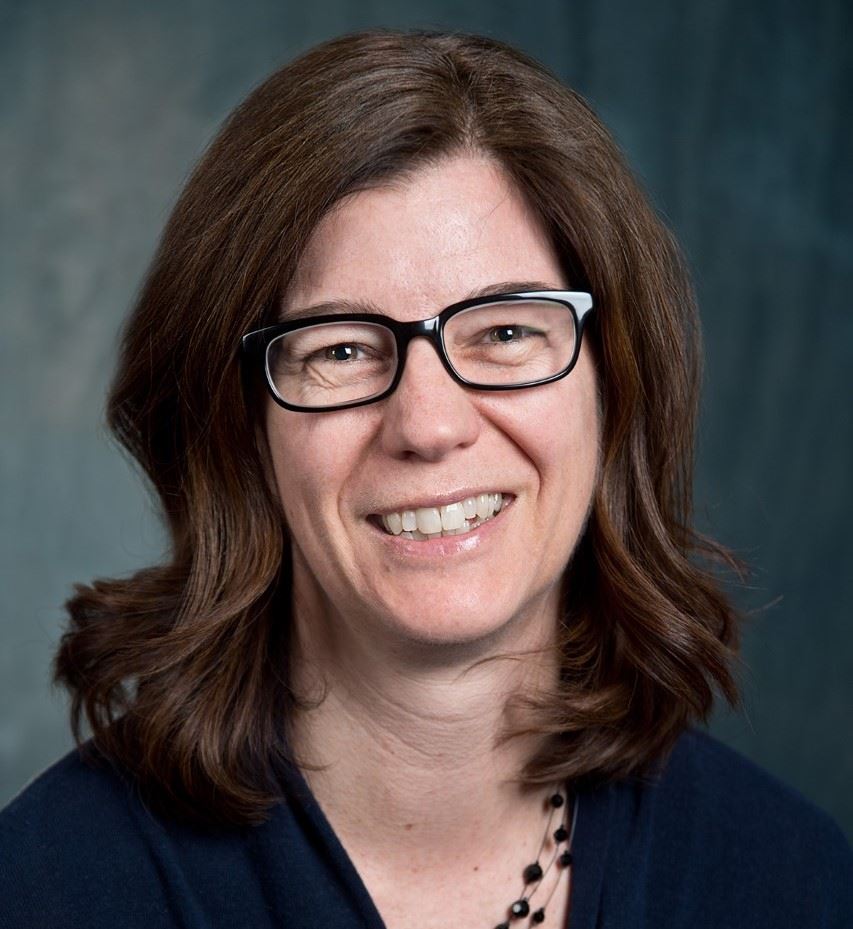 Jennifer Moore is an associate professor in the College of Arts, Humanities, and Social Sciences at the University of Minnesota Duluth. Her work on the nineteenth century illustrated press has appeared in media history journals and edited collections. A former co-coordinator of the Joint Journalism and Communication History Conference, Moore is a member of the AJHA Board of Directors and coordinator of the organization's media literacy efforts.
Jennifer Moore is an associate professor in the College of Arts, Humanities, and Social Sciences at the University of Minnesota Duluth. Her work on the nineteenth century illustrated press has appeared in media history journals and edited collections. A former co-coordinator of the Joint Journalism and Communication History Conference, Moore is a member of the AJHA Board of Directors and coordinator of the organization's media literacy efforts.
When and how did you first become involved in AJHA?
My first AJHA conference was in San Antonio as a graduate student in 2005. I was invited to present on a panel about online resources for scholars. My presentation focused on visual materials (e.g. cartoons, photojournalism, graphic design). I remember the experience fondly. It was a lively session where senior scholars had a lot of questions about using online databases and visual culture. It was a nice introduction to the supportive environment AJHA has proven to be for many early scholars. Remembering this also makes me feel a little old! Who can imagine doing research without the use of online resources today?
I also remember being pleasantly surprised when I was handed a check to offset my travel expenses. I hope our organization can continue supporting the next generation of scholars. Every penny counts!
You've been heavily involved in the Symposium for the 19th Century, Press, the Civil War, and Free Expression. What draws you to that era of history?
Dr. Hazel Dicken-Garcia first introduced me to the endlessly fascinating world of nineteenth century journalism. Dicken-Garcia advised my Master's thesis at the University of Minnesota, and I continued working with her during my Ph.D. studies. I would not be the scholar I am today without her guidance and enthusiasm about studying the past. I see so many fascinating parallels between journalism innovations in the nineteenth century and today's media ecosystem. Studying the past is like time travel, and it keeps me curious. Nineteenth century artifacts offer endless possibilities for new knowledge. It's such a joy to make new connections to the past, and it happens often enough to keep me returning to this time period. I also find the community of nineteenth-century scholars to be the best colleagues one could hope for.
How does your historical scholarship influence your teaching of modern topics like digital storytelling and social media?
I strive to make connections to past media practices to contextualize social, political and economic issues facing journalism and media today. For example, it's always fun to introduce students to "fake news" in the nineteenth century and use history to reflect on misinformation and how it spreads on social media. The differences and similarities always spark thoughtful discussions with my students about power, audiences, and media as social institutions.
What do you feel is the importance of media literacy to the study of media history?
That is a great question and one that I continue to ask. The recent challenge to the democratic process by way of mob violence at the U.S. Capitol on January 6, 2021, is the wake up call we all needed to make media literacy a more urgent matter. An understanding of media history can help empower citizens to know when politicians are abusing their elected positions for personal gain. It's trite, but apt, to say if we don't know our past we're doomed to repeat it. As an organization, I'd like to consider how AHJA members can serve the communities where they work and live. For example, I am speaking on a panel to the League of Women Voters of Duluth in January 2022 about media literacy. I'm also excited to be working on this with AJHA President Aimee Edmondson, who is making media literacy a priority of her presidency this year. We hope to come up with some actionable steps for our members to do in their communities on this topic.
What can you tell us about what you've been working on during your sabbatical?
I am revisiting a research area that I've put aside that looks at public health, journalism, and visual culture. By the time I return to the classroom in Fall 2022 I hope to have a book contract in hand. Wish me luck!
I've also taken advantage of this time to do some skill-building. I had the opportunity to take a documentary film workshop from an international award-winning documentarian in Duluth last fall. It was a terrific experience, and I look forward to bringing what I learned back to the classroom as well as in community-engaged research projects.
What are some of your hobbies and interests outside of academia?
I do my best to embrace the outdoors. I love a brisk walk or a long bike ride and hope to start running again after recovering from an injury. Living where I do, I also take advantage of the snow and cold. I like to snowshoe and cross country ski a few times a season. I began knitting a few years ago and that continues to be a source of solace. Live music is also a passion of mine; the pandemic has made that a bit of a challenge, but I attend shows when it feels safe.

